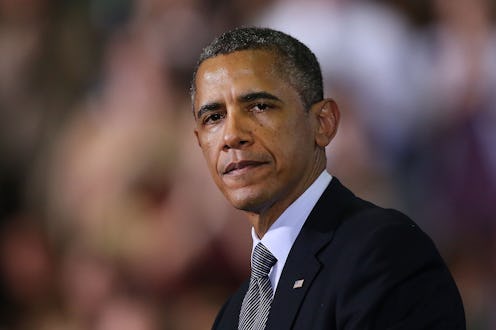News
Obama Won't Say Armenian "Genocide"
Friday marks the 100th anniversary of mass killings that left 1.5 million Armenians dead at the hand of Ottoman Turks during World War I. But to the disappointment of Armenians worldwide, there will be a glaring omission in President Obama's annual statement, a key word that has in fact been missing in official speeches for years. On Tuesday, White House officials confirmed Obama will not use "genocide" to describe the massacre. The decision is a major disappointment for Armenian American activists who were hoping Obama would fulfill a long-ago campaign promise to officially recognize the atrocity as a genocide.
A White House statement released Tuesday also avoided the term when it described a meeting that took place between officials and Armenian groups. Instead, the White House pledged to "use the occasion to urge a full, frank, and just acknowledgement of the facts that we believe is in the interest of all parties." An unidentified official confirmed to CNN Obama would refrain from using the word in Friday's statement.
We know and respect that there are some who are hoping to hear different language this year. We understand their perspective, even as we believe that the approach we have taken in previous years remains the right one — both for acknowledging the past, and for our ability to work with regional partners to save lives in the present.
The move is likely to upset ethnic Armenians worldwide, who are still waiting for Obama to follow through on a 2008 campaign promise. “As president, I will recognize the Armenian Genocide,” he said during his first White House run. But Obama has yet to deliver, largely due to the United States' delicate diplomatic ties with Turkey, a key U.S. partner in the contentious Middle East region. For now a century, the Turkish government has denied killings were intentionally carried out to wipe out the Armenian population. Turkey acknowledged the deaths happened but instead claimed they were casualties of war.
But in recent times, attitudes toward the massacres are starting to shift as prominent leaders have used the word that has long been absent from others' lips. Earlier this month, Pope Francis incurred Turkey's anger by referring to the slaughter as "the first genocide of the 20th century." Turkish Foreign Minister Mevlüt Çavuşoğlu tweeted Francis' comments were "unacceptable" and that "religious positions are not places where unfounded claims are made and hatred is stirred." But in his speech, Francis said it was important to honor people who were "senselessly" murdered.
Concealing or denying evil is like allowing a wound to keep bleeding without bandaging it.
Image: Getty Images (2)
